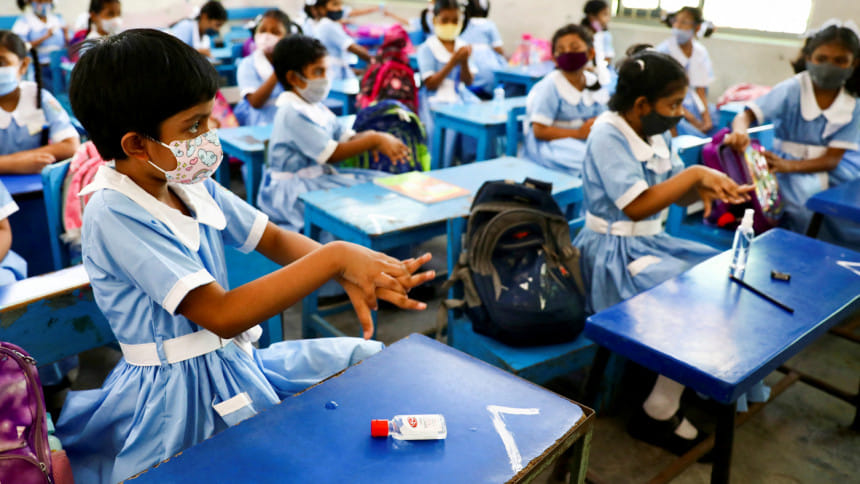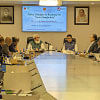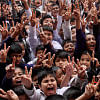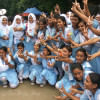Fixing the learning gaps caused by Covid-19

Prof Tom Kane of Harvard University and Prof Sean Reardon of Stanford University, teaming up with some other researchers from Dartmouth and Johns Hopkins, along with a testing company called Northwest Evaluation Association (NWEA), recently studied data from 7,800 communities in 41 out of the 50 US states, where almost 26 million elementary and middle school students are enrolled in more than 53,000 schools that constitutes approximately 80 percent of the public school students in the country. Doing so, they found that the average primary and secondary school students in the US overall fell half a year behind in maths, and third of a year behind in reading as a result of Covid-19 shutdowns. Yes, that was expected.
In a recent article published in The New York Times, titled "Parents Don't Understand How Far behind Their Kids Are in School," the authors provide insights that are valuable for the US, but what's important for us here in Bangladesh is that, when taken in the overall context of learning losses during the pandemic, the study is extremely relevant for us. Our own minimal and informal efforts at a similar study (with far less resources and limited scope) to work and collect data at a few schools in a village shows findings that are remarkably similar, and hence we believe it might be wise for us to take lessons from the findings of this study.
In 2022, more than 90 percent of US parents thought their children had already or would soon recover from the learning losses. However, even with additional lessons, teachers and activities supported by the huge federal aid of $190 billion, students caught up with only about 25 percent of the preceding 1.5 years' learning losses. It means, a minimum of four years will be required to fully catch up. A student from a lower- to average-income family is typically 1.5 years behind the national average, and almost four years behind students from well-to-do families – in both math and reading. To put this in perspective, given our meagre resources, let's consider how long it might take for students in Bangladesh to recover.
Our own work with 73 female students – a miniscule number in comparison – since mid-2022 shows almost the same results: an average fifth grader has only second grade to second-and-a-half grade abilities in reading, and much less in math – approximately 2.5-3 years behind! Some pre-Covid studies here had suggested that students were typically behind almost two years in math and 1.5 years in reading. Considering the massive toll in this regard, one could imagine how far behind the rest are – especially those who are in the provincial cities and in remote villages. It's not impossible to imagine that some may not even have the second grade skills.
More than 30 million students in the primary and secondary schools in Bangladesh are in this situation today. The measures taken for recovery have so far been completely inadequate. The policymakers must be trying hard to tackle the issue, and we sympathise with the difficulties they are facing. However, the problem is so complex and massive that it might require summoning up every support and assistance that is available to the government – from the civil society to NGOs, and local philanthropic and social groups; anyone and everyone who is available.
Below are the specific issues identified in the study; let's try to relate them to our situation and explore the possible ways out:
1) Auto-promotions, testing on reduced curriculum, etc are a death sentence to education. In some disciplines, for example, in maths, the concepts need to be understood sequentially – as the article says, "from arithmetic to fractions to exponents to algebra." Making shortcuts in the curriculum, slashing certain topics, and most heinously, promoting students to the next grade – like what the Bangladesh government did – is tantamount to a death sentence to the educational career of many, if not most.
Unless a major effort is taken to provide extra hours of lessons to make up for the losses, especially in maths, these folks are not only never going to recover, they're increasingly going to fall behind. The result will be a massive nail in the coffin of our hopes for a "Smart Bangladesh." These folks will be unable to read, write or do basic arithmetic. The backbone of the working class – the strength on which you build a nation – will have been destroyed.
2) Finding ways to add learning opportunities, especially with the aid of technology – e.g. Khan Academy, Zearn and other educational apps and platforms – can be helpful if properly used and expertly guided. But given the fact that our government may simply not have the resources available to support the whole public education system, it could, say, ask the Bangladeshis abroad to assist, local agencies to provide guidance, plead the parents for help, organise after-school groups – generally get all hands on board.
3) Make the teachers do their job. In the findings of the study mentioned here, and per our own personal experience, teachers are the biggest hurdle to learning, especially in Bangladesh, in primary and secondary schools. The majority of schoolteachers are neither sufficiently educated, nor trained, nor motivated to teach. Most of them are not willing to train themselves in any new educational tools. The government has to invest in good education; a meagre two percent of the nation's GDP is not going to create a "Smart Bangladesh."
Finally, it's true that we don't have America's problems, but we have our own. Fortunately or unfortunately, this particular problem has many similarities, and we can benefit from the knowledge already created. Failure to act on the learning losses of this generation – of the 30 million children - will cause the kind of havoc in the growth of our economy and the progress of our society the likes of which we have never seen. After all, this is nothing less than saving the future of this nation, and the government must take the issue more seriously.
Dr Halimur R Khan is a university professor and can be reached at [email protected]

 For all latest news, follow The Daily Star's Google News channel.
For all latest news, follow The Daily Star's Google News channel. 








Comments